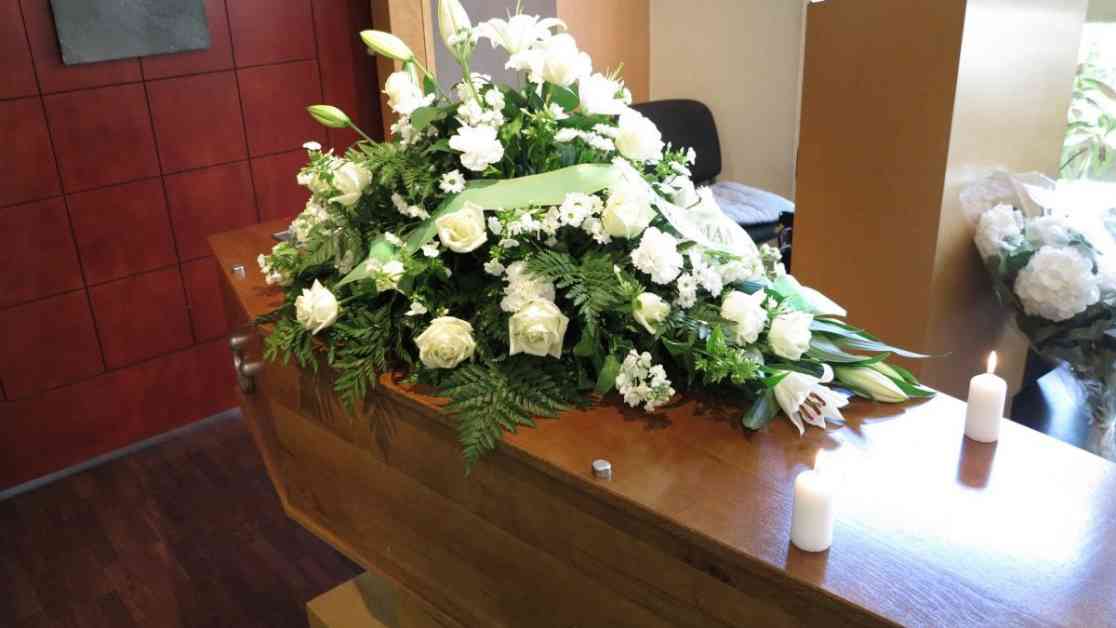Cash-strapped councils across England are facing a growing trend of cremating residents due to budget constraints, a practice that has raised concerns among industry experts. With tighter budgets and a lack of loved ones to cover funeral costs, more than 12 funerals funded by councils, known as public health funerals (PHFs), are taking place every day, according to the Local Government Association (LGA).
Rising Trend of Council-arranged Funerals
Research conducted by the LGA has revealed a significant increase in the number of PHFs in recent years. In the 2022/23 fiscal year, there were 4,400 PHFs, representing a 12.8% rise from the previous year’s figure of 3,900. The survey of 109 councils in England found that 62% of councils cited the lack of family or friends able to fund a burial as the primary reason for these funerals.
Councils step in to arrange PHFs when a person passes away outside of a hospital setting without any funeral plans in place. While efforts are made to locate relatives to handle the deceased’s estate, if no suitable arrangements can be made, councils provide a simple service based on the deceased’s preferences, if known. The Public Health (Control of Disease) Act mandates local authorities to facilitate the burial or cremation of individuals found dead in their area when no other arrangements have been made.
The Impact of Budget Constraints on Funerals
Christina Martin, a technical support officer at Wealden District Council, has been involved in funeral duties since 2017. She highlighted the financial pressures facing councils, leading to potential policy decisions to opt for direct cremations as the most cost-effective option. Direct cremations, which do not involve mourners, ceremonies, or visits to a funeral home, are becoming increasingly popular among councils grappling with limited resources.
Martin emphasized the challenges faced by councils in interpreting public health legislation to handle the disposal of deceased individuals. She noted that councils are under increasing pressure to make funding-based decisions, which could result in more residents being cremated rather than receiving traditional funeral services. Despite the lack of specific legislation for funeral services, some councils still offer services for deceased individuals without means to cover funeral costs.
Addressing Funeral Poverty and Rising Costs
The cost of a basic funeral in the UK has risen to £4,141, marking a 4.7% increase from the previous year, according to a recent report by SunLife. This increase in costs has exacerbated the issue of funeral poverty, particularly affecting families of individuals who pass away at a younger age. Martin observed a trend where families struggle to afford funeral expenses, underscoring the need for more affordable options and increased financial support for bereaved families.
As demand for council-arranged funerals continues to rise, the total expenditure on PHFs in England reached £5.96 million in the 2022/23 fiscal year, up from £5.63 million in the previous year. Philip Spicksley, CEO of the Association of Independent Celebrants, expressed concerns that escalating costs could lead to the elimination of such services, pushing councils towards more cost-effective solutions like direct cremations.
Potential Solutions and Long-term Funding
Martin Ellis, a funeral celebrant with extensive experience officiating PHFs, noted a significant increase in demand for these services. He emphasized the importance of proper funding for councils, public health services, and mental health support to address the underlying issues contributing to the rise in council-arranged funerals. Ellis highlighted the need for government policies that prioritize vulnerable individuals and ensure adequate support for those in need.
Cllr Heather Kidd, chair of the LGA’s safer and stronger communities board, emphasized the challenges faced by councils in delivering essential services amidst budget constraints. She stressed the need for long-term funding certainty to maintain the high standard of services, including PHFs, and alleviate the financial burden on council budgets. The rising number of public health funerals serves as a stark reminder of the growing pressures faced by local authorities as they strive to meet the needs of their communities within limited resources.
Overall, the trend of cremating lonely residents due to budget constraints underscores the complex challenges faced by councils in balancing financial constraints with their duty to provide dignified send-offs for deceased individuals. As the cost of funerals continues to rise and families struggle to cover expenses, there is a pressing need for sustainable solutions and long-term funding to ensure that all residents receive proper end-of-life care and support.













